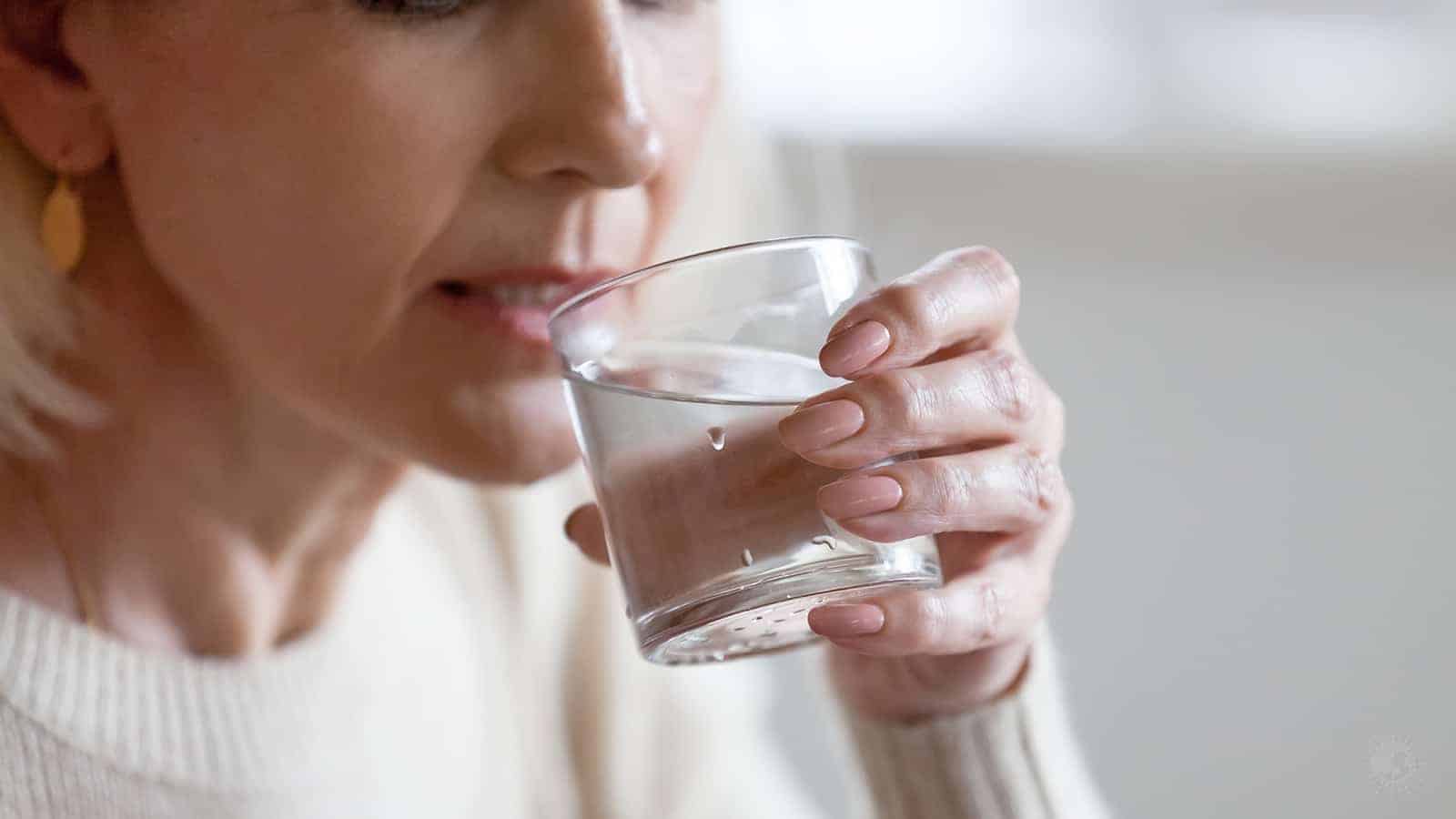There’s nothing like a tall glass of ice-cold water. However, what if you drink continuously, but your thirst is never quenched? Did you know that many medical conditions can cause excessive thirst?
Your body is about 60 percent water. You may be shocked to learn that your lungs are around 80 percent water, and your heart and brain about 70 percent. When you understand how much H20 each organ needs, it’s easy to see why water is essential to your body.
If you feel that you could drink an entire gallon without stopping, then your body is trying to tell you something. Let’s assume you just completed a grueling workout. As you moved and grooved, your body sweat many of the fluids you need.
You must replace the water you lost during your workout, or you can become dehydrated. You suddenly feel a sense of relief after you fill your tank once again. However, what if you haven’t done any workout, and what if you keep drinking, but nothing is quenching your thirst? What do you do when the need for hydration becomes completely insatiable?
Reasons for Excessive Thirst
Your body has a unique way of communicating with you. For instance, the pounding headache is trying to tell you that you have a slipped disk in your neck. You might experience nausea or diarrhea when a bacterial virus has entered your system.When it comes to excessive thirst, your body is trying to tell you that you need to fix what’s wrong. Sometimes, it’s an easy fix, but other times, you need medical intervention. Please don’t ignore the need for constant hydration as it’s a signal of something underlying. Here are the most common reasons why you cannot quench your thirst.
1. Thyroid Problems
According to experts, around 20 million people in this country have a thyroid disorder. Did you know your thyroid controls many functions in your body? This small butterfly gland at the bottom of your neck regulates things like temperature and your energy levels.
Consequently, most people don’t know that too much or too little of this hormone can cause all sorts of issues in your body, one of which is dry mouth. People who have hypothyroidism, or an underactive thyroid, are the ones that usually experience thirst-inducing problems.
2. Consuming Diuretic Foods
Did you know that there are many foods out there that can cause you to urinate more? Things like celery, lemons, parsley, and even watermelon can cause you to expel more water. Since many of these foods have many great health benefits for the body, you don’t want to give them up.
However, you should know that you may have to increase your fluid intake when consuming any of them. Additionally, watch out for fiber-rich foods, which can also have a similar effect, including quinoa, oatmeal, and rice.
3. Menstruation
Did you know that your estrogen and progesterone levels can have a profound effect on your body’s fluid levels? During a woman’s monthly cycle, she is likely to feel thirsty as these hormones are at their highest. Another consideration is that she can lose too much water during menstruation.
If a lady has a heavy flow for several days, it can trigger you to put more fluid into the body. So, it’s always a good idea to keep a bottle of water handy during your time of the month.
4. Diabetes or Diabetes Insipidus
If you drink more water, you’re going to urinate more often. However, if you have other symptoms like weight loss, exhaustion, and irritability, then it can be a sign that you have diabetes. You will need to see your doctor and have a glucose test to determine the diagnosis.
Diabetes causes you to expel much of your fluid reserves through frequent urination, so it’s only natural that you need to replace those lost fluids. Now you shouldn’t confuse diabetes with diabetes insipidus as they are two different conditions.
Diabetes insipidus is a separate beast, and it too causes you to lose too much fluid. This ailment causes your body’s fluid levels to be off, which can cause some serious problems. Your unquenchable thirst is your body’s way to replenish this loss. Thankfully, treatment can help to reduce water loss so that you can calm your thirst.
5. Dry Mouth
If you have dry mouth, which is medically known as xerostomia, many people confuse it for unquenchable thirst. However, medications can cause this problem as well as dry mucus membranes inside the mouth. When the glands in your mouth don’t make an adequate amount of saliva, it can cause you to have a cottonmouth, bad breath, and even saliva that is stringy in appearance.
This problem is commonly seen among those that smoke cigarettes or use marijuana. Rarely, it can be an underlying medical issue like Sjögren’s syndrome that is causing this pesky dry mouth, which is why you should always mention such matters to your doctor.
6. Dehydration
When your body’s water levels get dangerously low, you can become extremely sick. Think of it as a swimming pool. You won’t notice if a little water is missing from the surface. However, if a hole causes the pool to lose over one-third of the water content; then, it becomes easier to identify a problem.
When your body’s water content gets too low, it’s a cause for alarm. Since most of your body is made up of water, you need to replenish the fluid loss so that your organs can flourish properly. Dehydration can cause some scary symptoms, and if water levels get too low, you can even slip into a coma or even die.
If you’ve had an extended period of sickness where you’ve been vomiting and had severe diarrhea, then you need to replenish your water and electrolytes immediately.
7. Low-Carb Diets
If you’re on the keto or low carb diet, you may find that you have excessive thirst. Carbs have many functions within the body, one of which helps hold onto your water intake.
Since you’re eating more protein and fat, you will often urinate more frequently as there’s nothing to help absorb the water. You will likely notice you are going to the bathroom more and have the need to drink more fluids.
8. Anxiety
Who would think that anxiety would increase your thirst? When your stress is high, it can take the excess water from your mouth and disperse it to other areas of the body.
Anxiety disorders also cause stomach acids to churn, which can lead to a loss of saliva. Being anxious can make you feel all sorts of things, but one of the first things it does is make you have a dry mouth.
9. Pregnancy
Pregnancy can cause all sorts of issues within the body. One thing that many pregnant mothers notice is excessive thirst. This is especially common during the first trimester as the blood volume in the body increases.
The extra blood circulating through your system causes your kidneys to get rid of any excess fluid, making you urinate more. It’s also common for a woman to have morning sickness with nausea or vomiting during this time, which can cause fluid levels to be off-kilter.
10. Heat Exhaustion
Have you ever been outside in the blazing sun when the temperatures were above 90 degrees? Your body will sweat profusely, which causes you to use any fluid reserves. Miners are often required to work in all types of weather, and during the heat and humidity of the summer, it’s not uncommon for them to drink up to three gallons of water to stay hydrated?
Your body needs to replenish the lost water, and if you don’t do it quickly enough, you can be in real danger. The fluids in your body help to keep you cool. If you’ve lost plenty of fluids, then you can quickly have heat exhaustion. The body temperature rises fast, and it can be a deadly situation.
Final Thoughts on Excessive Thirst
There are numerous reasons why you might experience an unquenchable thirst. Most importantly, you should know that your body is trying to communicate with you and tell you that something isn’t right. It can be as simple as a medication you’re taking is causing you to urinate more, which is depleting your fluid levels.
However, some situations that cause excessive thirst can be dangerous and need prompt medical attention. The good news is that it’s almost impossible to drink too much water. Most people drink a bottle or two to quench their thirst. You can safely drink a gallon of water without issue, but two or more gallons may be needed when you’re out in the heat and humidity.
Listen to your body and don’t allow this excessive thirst issue to drag on longer than necessary. It could be a benign situation, but it could be something concerning that needs prompt medical attention. Be safe and have any chronic thirst issues addressed by a medical professional.
















 Community
Community

